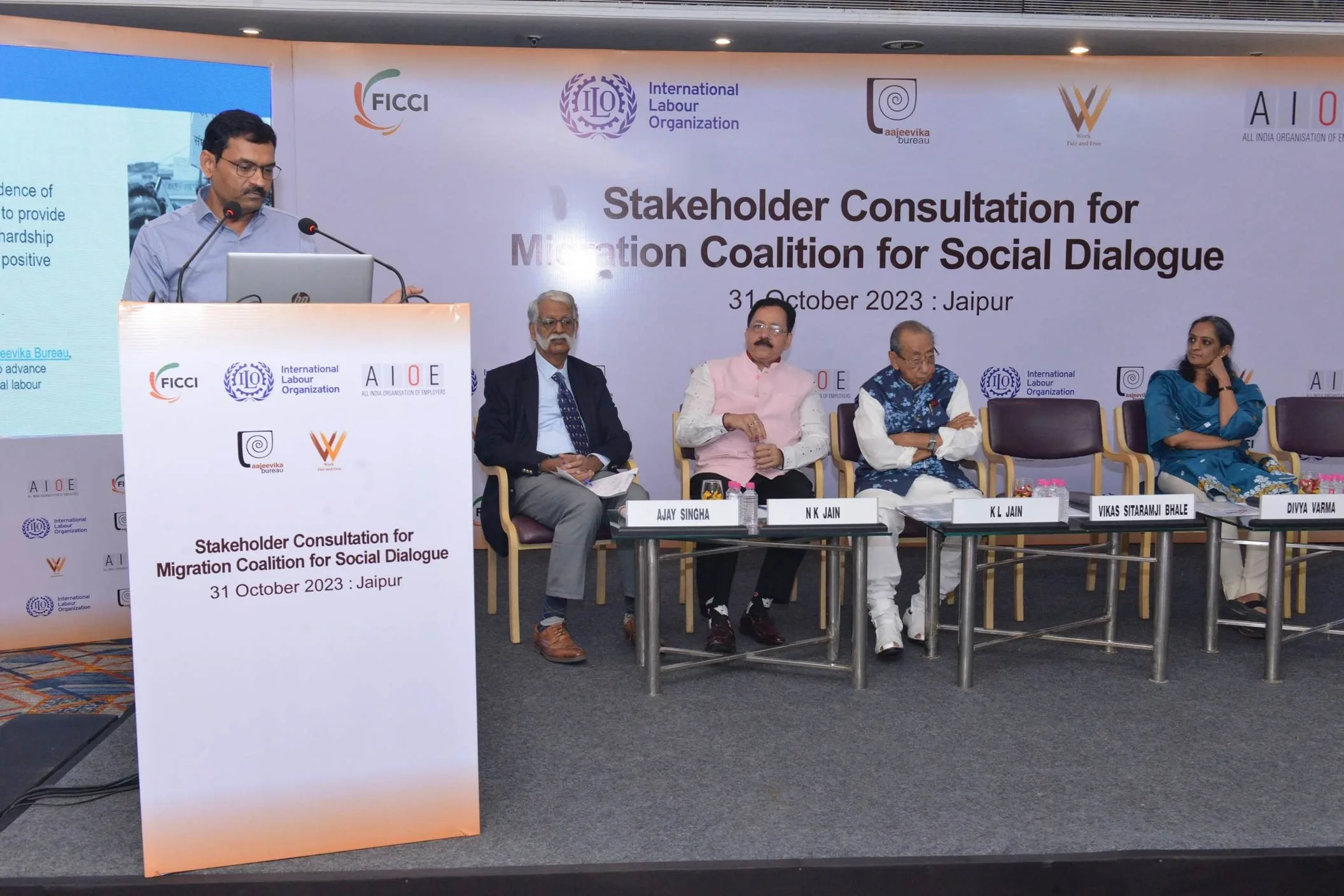IN PARTNERSHIP
Aajeevika has nurtured and incubated multiple organisations working on allied issues like health, financial inclusion, and housing for migrants. Co-located with Aajeevika’s field centres, these institutions have created an ecosystem of services that bring greater security and dignity to the lives of informal sector migrants. We continue to work in close partnership with these organisations.
ORGANISATION
Basic HealthCare
Services (BHS)
Basic HealthCare Services (BHS)
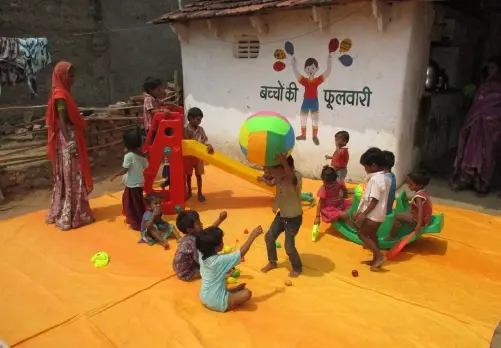
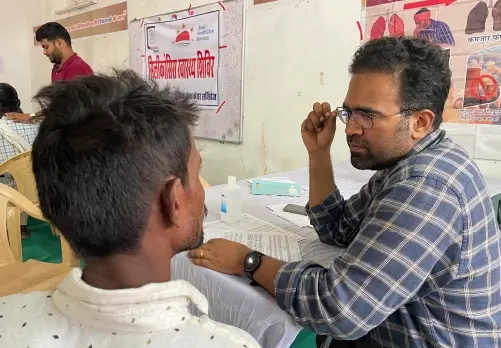
Basic Healthcare Services (BHS). is an organization of immense repute focusing on high-quality, low-cost primary healthcare services in rural areas affected by poverty, poor access and distress migration. Tribal communities in remote, rural areas of south Rajasthan carry a high burden of illness and malnutrition. Distress migration, hazardous work and poor incomes combine to keep the health status of communities poor and compromised. Public health systems and services are deficient. When confronted with an illness, many resort to informal treatment providers or seek care at an advanced stage of the disease, leading to high expenditure, and consequent slide into deeper debt.
In response to these conditions, BHS runs AMRIT Clinics that provide easy access to primary health care to an otherwise unserved population of over one lakh. BHS also supports day-care centres for children under 5 (Phulwaris) in remote hamlets, that ensure proper nutrition and adequate care for children whose parents are deprived of these resources. BHS is developing specialised interventions in mental health and pulmonary disorders in rural communities. It makes rich contribution to research and policy for primary health care everywhere.
The operations and services of BHS and Aajeevika are co-located in tribal blocks of South Rajasthan. Aajeevika Bureau provided initial incubation support to BHS in 2012. BHS is led by Dr Pavitra Mohan and Dr Sanjana Mohan.
Basic Healthcare Services (BHS) is an organization of immense repute focusing on high-quality, low-cost primary healthcare services in rural areas affected by poverty, poor access and distress migration. Tribal communities in remote, rural areas of south Rajasthan carry a high burden of illness and malnutrition. Distress migration, hazardous work and poor incomes combine to keep the health status of communities poor and compromised. Public health systems and services are deficient. When confronted with an illness, many resort to informal treatment providers or seek care at an advanced stage of the disease, leading to high expenditure, and consequent slide into deeper debt.
In response to these conditions, BHS runs AMRIT Clinics that provide easy access to primary health care to an otherwise unserved population of over one lakh. BHS also supports day-care centres for children under 5 (Phulwaris) in remote hamlets, that ensure proper nutrition and adequate care for children whose parents are deprived of these resources. BHS is developing specialised interventions in mental health and pulmonary disorders in rural communities. It makes rich contribution to research and policy for primary health care everywhere.
The operations and services of BHS and Aajeevika are co-located in tribal blocks of South Rajasthan. Aajeevika Bureau provided initial incubation support to BHS in 2012. BHS is led by Dr Pavitra Mohan and Dr Sanjana Mohan.


Shram
Sarathi
Shram Sarathi
Shram Sarathi, is a pioneering non-profit financial services company that aims to expand financial inclusion of labour migrants and their households. The first dedicated financial services institution in the country for migrants, Shram Sarathi offers services specially designed for low-income migrants. These include affordable credit, savings, insurance, old-age pensions, remittances and payments and a significant financial literacy program.
Low income migrant workers face exclusion from formal financial services due to their uncertain incomes and constant movement between villages and cities. In the absence of access to finance, they are unable to save and often get caught in conditions of debt-bondage and over-indebtedness. Shram Sarathi’s work has resulted in the direct inclusion of nearly 60,000 previously unbanked migrant families. It has designed and delivered small loans and has created a unique programme in financial literacy and social protection for wage dependent households.
The operations of Shram Sarathi and Aajeevika Bureau are co-located in tribal blocks of South Rajasthan. Aajeevika Bureau provided incubation support to Shram Sarathi in 2009.
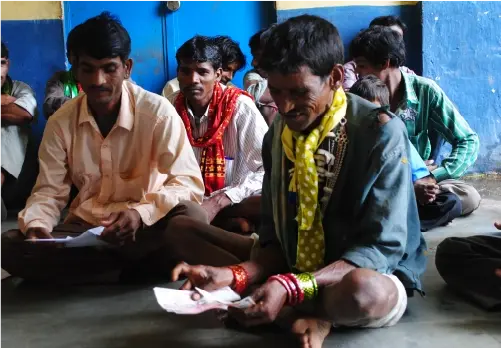
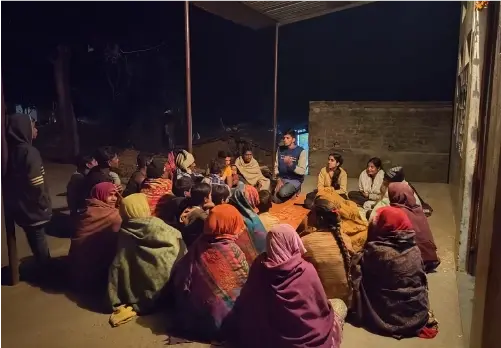
Shram Sarathi, is a pioneering non-profit financial services company that aims to expand financial inclusion of labour migrants and their households. The first dedicated financial services institution in the country for migrants, Shram Sarathi offers services specially designed for low-income migrants. These include affordable credit, savings, insurance, old-age pensions, remittances and payments and a significant financial literacy program.
Low income migrant workers face exclusion from formal financial services due to their uncertain incomes and constant movement between villages and cities. In the absence of access to finance, they are unable to save and often get caught in conditions of debt-bondage and over-indebtedness. Shram Sarathi’s work has resulted in the direct inclusion of nearly 60,000 previously unbanked migrant families. It has designed and delivered small loans and has created a unique programme in financial literacy and social protection for wage dependent households.
The operations of Shram Sarathi and Aajeevika Bureau are co-located in tribal blocks of South Rajasthan. Aajeevika Bureau provided incubation support to Shram Sarathi in 2009.


ShelterSquare
Foundation
ShelterSquare Foundation
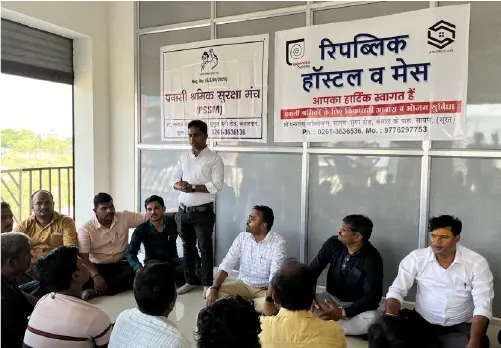
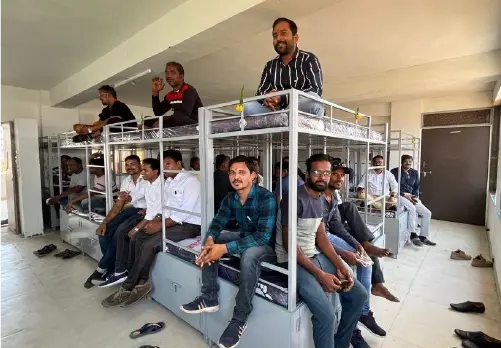
ShelterSquare Foundation is a multi-stakeholder platform to develop and implement housing solutions for migrant workers. Across Indian cities, migrant workers are denied dignified housing. In the absence of affordable housing solutions, workers must resort to precarious living arrangements, with poor access to basic amenities and constant threat of eviction. The gendered costs of such living arrangements are high too, manifesting in the form of grave safety risks for women workers. Located in urban peripheries, away from industrial hubs that workers would need to commute to, affordable housing programmes launched by the State typically overlook workers’ practical requirements. ShelterSquare has been set up to bridge these systemic gaps and build cost-effective, sustainable, and community-led housing solutions for workers.
ShelterSquare Foundation has been incubated by Aajeevika Bureau in 2023. The company has started its first hostel and mess operations in the city of Surat and is ready to expand to other migrant – dense sites in the cities of Gujarat.
ShelterSquare Foundation is a multi-stakeholder platform to develop and implement housing solutions for migrant workers. Across Indian cities, migrant workers are denied dignified housing. In the absence of affordable housing solutions, workers must resort to precarious living arrangements, with poor access to basic amenities and constant threat of eviction. The gendered costs of such living arrangements are high too, manifesting in the form of grave safety risks for women workers. Located in urban peripheries, away from industrial hubs that workers would need to commute to, affordable housing programmes launched by the State typically overlook workers’ practical requirements. ShelterSquare has been set up to bridge these systemic gaps and build cost-effective, sustainable, and community-led housing solutions for workers.
ShelterSquare Foundation has been incubated by Aajeevika Bureau in 2023. The company has started its first hostel and mess operations in the city of Surat and is ready to expand to other migrant – dense sites in the cities of Gujarat.
In October 2023, the company started running its first hostel and mess in Gujarat’s Surat, accommodating 180 migrant workers.


Work Fair and Free
Foundation
Work Fair and Free Foundation
Work Fair and Free Foundation (WFF, erstwhile Centre for Migration and Labour Solutions) is a knowledge institution conceived and incubated by Aajeevika Bureau driven by a commitment to advance worker-centric knowledge and action, so that informal labour migration can become more secure and dignified. WFF aims to bring together grounded and rigorous research, insightful policy work, and innovative teaching and training, all supported and informed by impactful practice in urban industrial centres as well as rural migration clusters.
WFF draws upon Aajeevika’s practice in field locations using participatory tools of inquiry and blends these with wider research evidence to formulate policy positions and arguments. WFF’s research inquiries have a strong focus on the structural and political economy questions located at the cusp of labour and migration, gender, occupational safety, labour law, industrial supply chains, and urban governance. WFF’s outputs take various forms – tools to support grassroots mobilisation and workers’ solidarity groups, collectives, and unions; dialogues with state and industry to demand fairer labour practices and policies; as well as popular media and journal articles.
WFF’s outputs take various forms – tools to support grassroots mobilisation and workers’ solidarity groups, collectives, and unions; dialogues with state and industry to demand fairer labour practices and policies; as well as popular media and journal articles.
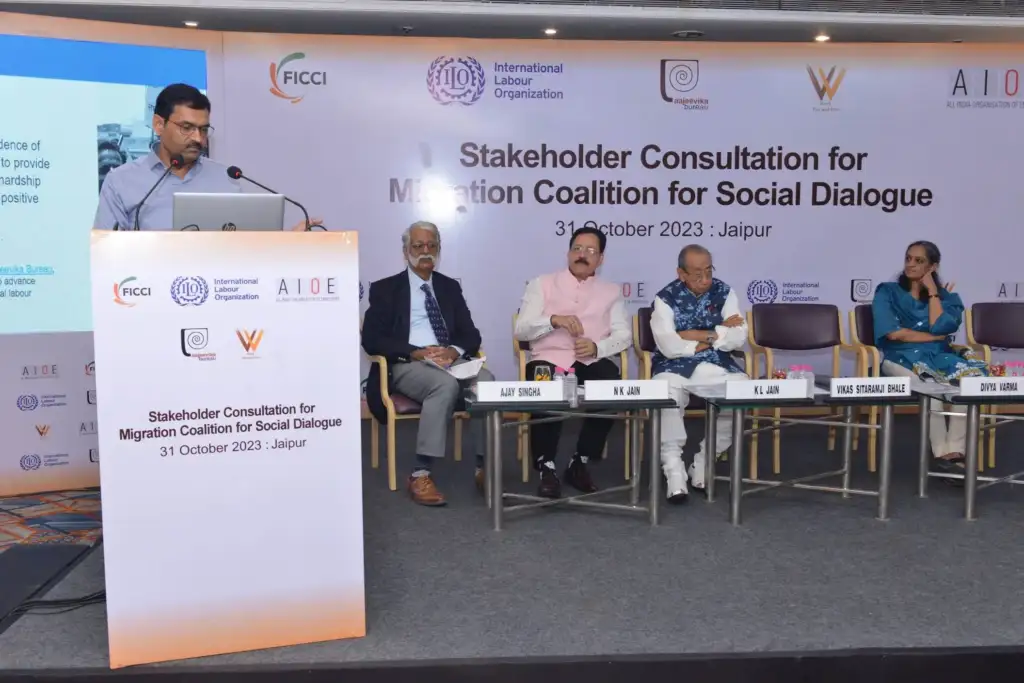
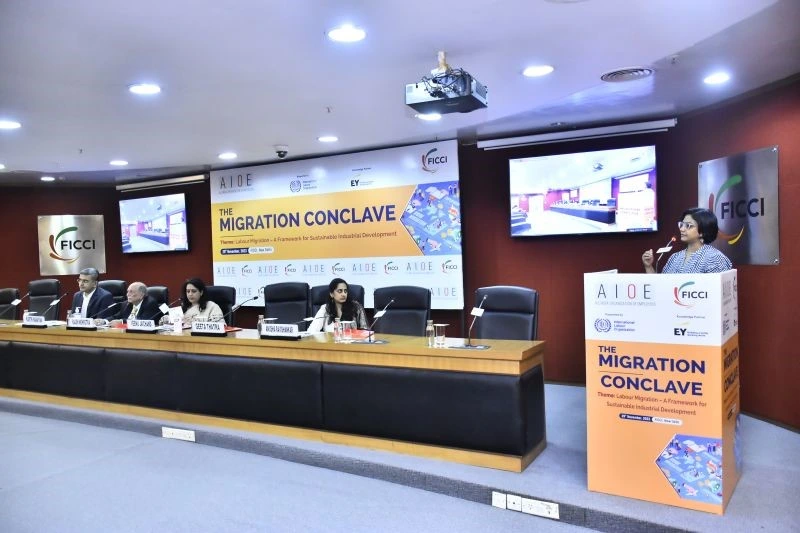
Work Fair and Free Foundation (WFF, erstwhile Centre for Migration and Labour Solutions) is a knowledge institution conceived and incubated by Aajeevika Bureau driven by a commitment to advance worker-centric knowledge and action, so that informal labour migration can become more secure and dignified. WFF aims to bring together grounded and rigorous research, insightful policy work, and innovative teaching and training, all supported and informed by impactful practice in urban industrial centres as well as rural migration clusters.
WFF draws upon Aajeevika’s practice in field locations using participatory tools of inquiry and blends these with wider research evidence to formulate policy positions and arguments. WFF’s research inquiries have a strong focus on the structural and political economy questions located at the cusp of labour and migration, gender, occupational safety, labour law, industrial supply chains, and urban governance
WFF’s outputs take various forms – tools to support grassroots mobilisation and workers’ solidarity groups, collectives, and unions; dialogues with state and industry to demand fairer labour practices and policies; as well as popular media and journal articles.
